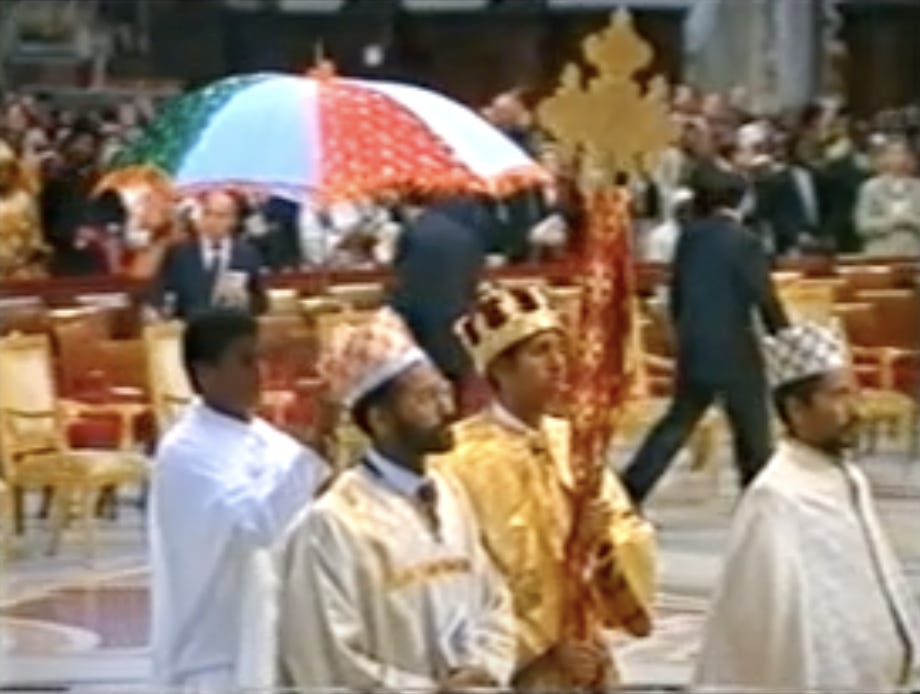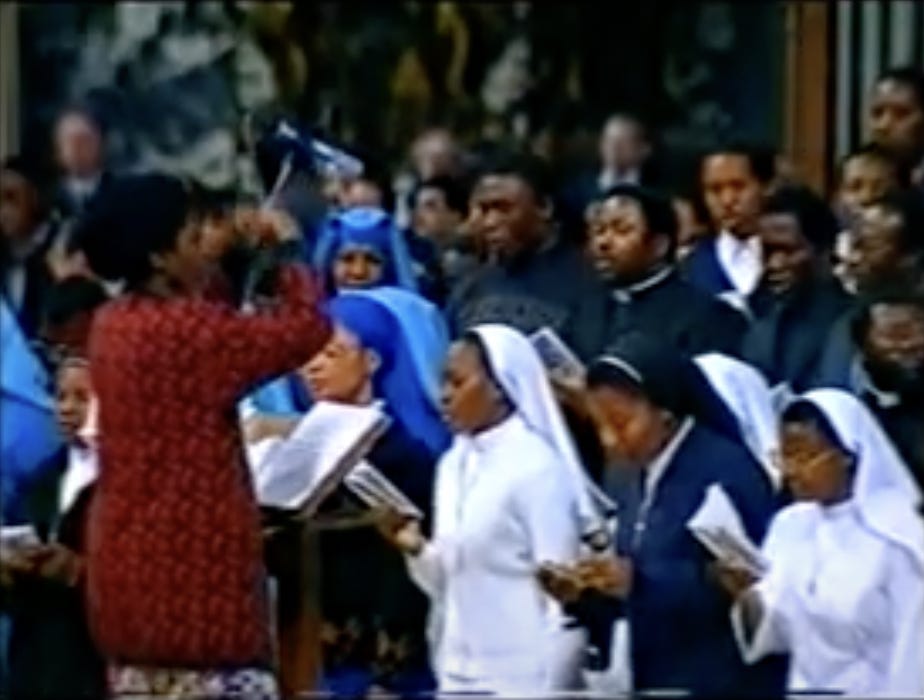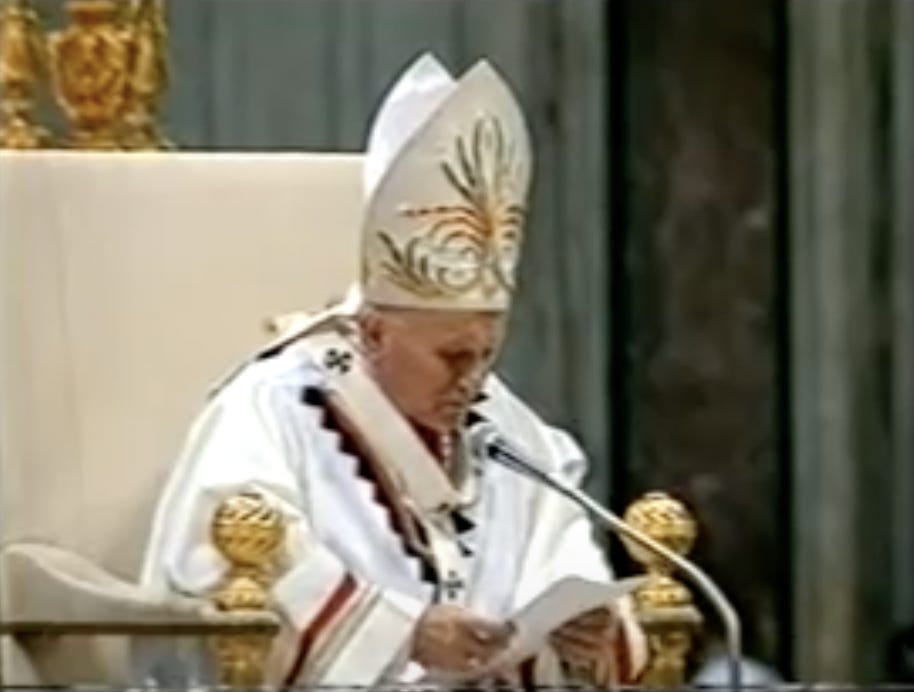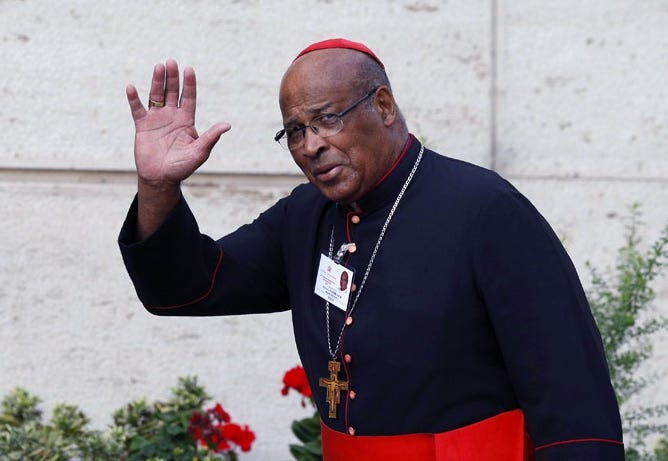As South African Cardinal Wilfred Napier Fox turns 80 years old, he sat down with The Pillar to talk about evangelization, the Church in Africa and it lessons for the world, ideological colonization, and the challenges of the pandemic.
Cardinal Napier has led an extraordinary life.
Born in Swartberg, South Africa in 1941, his generation lived through the rise and fall of apartheid in that country. Ordained a priest in 1970, Napier was named apostolic administrator of the Diocese of Kokstad eight years later, and become a bishop in 1980. In 1992 he became the Archbishop of Durban and was made a cardinal in 2001.
Napier has witnessed a demographic explosion in the Church in Africa over the course of his ministry.
This month, as Cardinal Napier turned 80, he aged out of his appointments in Rome and from any future papal conclave. He remains in the saddle as Durban’s archbishop, at least for now, and his voice in Church affairs looks unlikely to diminish anytime soon.
Cardinal Napier’s interview with The Pillar has been edited for clarity and length, and is being published in two parts. This is part one:
The Pillar: Your Eminence, happy belated birthday - despite turning 80, you’re still in office as the Archbishop of Durban, though. So no thoughts of slowing down?
Thanks very much - and no, no, I'm not yet. The pope is still holding me in tension for the time being. I think people had anticipated that by the 8th of March, I'd be out of the reckoning — I had done so too, until certain unforeseen events took place.
Of course, Pope Francis is well into his 80s, so there’s no guarantee of retirement.
That’s right. And he’s three years older than I am, I think. I’m busy reading Christus vivat again, and I love the way he talks there about how taking up new things, it restores your youth and your ability to dream and look into the future and your vitality as a result.
The Renewal of the Church
The Pillar: Your Eminence, looking at demographic trends, do you see the Church in Africa becoming a “world builder” in the coming decades? Is that something that you see requiring a cultural shift within the Church itself?
I would say it's a touch-and-go at the moment, because a lot of leaders in Africa are inclined to stress the material advantages or material progress above the spiritual.
But I believe that we ourselves need to follow in tune with what Pope Francis has been pushing: That is the renewal of the Church beginning with the family, because I think that's where the focus must be during this time of COVID, where families have been forced to spend much more time together. It's an opportunity for us to really emphasize, and popularize maybe, the concept of the domestic Church: that the Church is where two or three are gathered in Christ's name, and what better place than where people who share so much in common can share their life in common?
So, I think it's an area where we should use the opportunity — and the vaccine is not going to necessarily solve those problems. But relational problems need to be dealt with in a different way. That's the challenge.
I think the clergy are gradually realizing what they've got to step into: How do you go into those relational difficulties that are obvious now, because husbands and wives were in passing each other, like ships in the night, most of the time? And now they've got to sit down and they're anchored in the one bay and their difficulties really coming to before.
We've seen a huge upsurge in domestic violence in the last — in the months of the lockdown.
You speak about the need to rediscover and reemphasize the family and the domestic church. Is this something that you think the church in Africa has particularly emphasized and demonstrated? Is that connected to the inculturation of the Church, and especially the liturgy, in Africa?
I think so. If you recall, in 1994, when the first African synod was held in Rome, I’ll never forget that opening Mass, because for the first time I saw a pope during Mass beating time with his foot; there was this rhythm of the singing St. John Paul just couldn't resist!


The banjos were going along there, and the girls were singing and ueulating and what have you, there was Pope John Paul beating time with his foot. And I said “My goodness, the Church in Africa has arrived!” When this kind of music, this kind of singing, this kind of celebration is taking place right in the headquarters in Rome, I think that was a real recognition of the Church in Africa and its vitality. It was an eye-opener I think.

And of course, during the discussions, there's great emphasis that the family is so important to Africa. When two people get married, it's two families that do the negotiating, not the individuals, that's just a sign of how it is now in its pristine form. That would have been ideal, to continue that way, but now with the influences from the West, and especially with programs for “modernizing” Africa, some of those values have been pushed aside.
Answering that, it's going to be difficult for the Church, but it has the advantage it was offered in inculturation, that has certainly made a big impact. People now feel that it's their Church, it's not a Church from overseas that somebody else is coming in and imposing.
One of the points I think, which was made very strongly during that synod, and I think reflects to a large extent how the African synod was to help redefine the Church, was to speak not so much as the people of God, but the family of God — the family of God in Africa now. And the point being made is firmly central in African thinking: “Let's call the Church family and put the Church in that central position.”
Unfortunately, some of the African concept of family is also very exclusive, if you don't belong to the family you're outside, so it can have its downside as well.
The last three popes have spoken strongly against the concept of cultural colonization in Africa, tying aid and development to accepting secular Western norms. Is that still a live issue for the Church in Africa?
I think we're very conscious of that. And we've often spoken up and spoken about it, not often in the public media, but certainly in the background.
For instance, sometime back, I wrote an article in the newspaper complaining about how we were being forced by having conditions attached to the aid that was offered to us. I wrote in particular about the United States.
I got a very angry email from the consul general saying, ‘Where did I get this idea from?’ But I went on on the internet and, in two minutes flat, I found Hillary Clinton making those threats in central Africa where she was visiting, saying, “unless you do X, you're not going to get Y.”
So it's quite clear: This is one of the ways the donor countries and donor agencies are operating because they have to keep in touch with their own supporters, and their own supporters very often are people who want the most modern narrative to be the one that's going to be recited wherever the aid is going.
So at the moment we are having quite a lot of countries being told, ‘Unless you do X, unless you recognize gay marriages, you're not going to get aid.’ That's quite strong. And that's a threat to countries where there's a dire need for aid.
The Church and the pandemic
The Pillar: How are things going in South Africa at the moment? We know the pandemic is still very much a live issue there.
(Ed. note: South Africa has the highest number of confirmed COVID-19 cases in Africa, and demographers suggest that only half of COVID deaths in the country have been officially tallied.)
Everything is a bit on the up-and-down. Just when we thought we had broken the hump of the first wave around August-September of last year with the arrival of spring, the second wave hit us. So, well into summer we were breaking records as far as the number of people that were infected.
And the number of people that were dying was quite alarming, because prior to that, during the first wave you can say, “Oh,” someone says, “yeah, so-and-so has died” and point to somebody far away. By Christmas time, we're looking at people close to us in our families and among our circle of friends and so on who were succumbing to the virus. So the second wave was really, really a brutal strain. It really just caused damage. Like we couldn't imagine.
Now it has sort of come down, they've come down to a level where the new infections are averaging out to about 1,200 a day, which is still quite high, but the deaths are below a hundred. So that's something of a hopeful sign.
How has it been for your clergy? In many places, especially where the rates have been high, priests have been as much on the front line as healthcare workers.
That has certainly been the case. And a lot of them who were locked down have said they just feel... they don't know what they're there for if they can't go into the hospital, they can't do house visits and so on. But now that [lockdows] are a bit more relaxed, some of them are doing that. They're going to visit sick people.
It's a different case, but if it's somebody in a COVID situation, especially if they're in hospitals, the hospitals are not allowing priests in on a regular basis. Sometimes they will provide it: if the priest is not in a vulnerable age group, and if they accept the conditions, they accept that the risk is very high and they still are willing to go in and they will let them in.
But generally it's been very frustrating, I think, both for the faithful and for the priest: That those last moments in life are not able to be consecrated by the sacraments. I think that's one of the hardest parts with this coronavirus.
Much of the focus is now on vaccines: who can get them and how quickly. Do you expect that there will be widespread availability of vaccines in South Africa in time for it to make a difference?
We were promised with the first launch of vaccines that by such and such a day, we would have so many people done. But they discovered that that particular type of vaccine was not effective as far as the South African strain of the virus is concerned. So they had to bring in another shipment of vaccines, this one from the United States and they quickly were out to supply. Now it's on and off, who is getting it, who is not getting it.
I was told that I would be kept informed as to when to expect to be called for a vaccine, but some of the frontline people certainty are getting the vaccination. So the vaccine is getting a bit closer now, but I think we'd have to wait for the third wave of the vaccine before we get anywhere really.
How have you seen the faith having an impact on how people are experiencing the pandemic?
We're certainly seeing it with regard to the current president, he always ends his talks, his addresses to the nation, with an invocation of God's help, which is quite different from many of the other presidents that we've had before. They would talk a lot about how the churches were involved in the struggle [against aparthied], but it gave scant recognition to the spiritual role and the significance of that spiritual role in the building up of a nation of people. Because I think that's ultimately what we are called to be is to be nation builders and we're building the nation for God.
And so if you're not using your church, your nation builders, in the right way, other things are not going to come right. And that, if anything, it puts a big question mark for me - this question of total reliance on the vaccine to make the turnaround.
I think we need more than the vaccine. We need a much more positive attitude towards life. And if you have a more positive attitude towards marriage, you're going to look after and protect the vulnerable, and you're going to do it in a reasonable way. And so you're not just keeping people alive for the sake of being alive. You want some quality of life, and you can't have quality of life if relationships that make that life worth living are going to be completely cut off.
And that's the sad thing about people in old age homes and who are isolating themselves at home, that they don't have a refreshing presence on grand and great-grandchildren to give them new hope and keep the hope that they have alive.
This is part one of The Pillar’s interview with Cardinal Wilfred Napier. Look soon for the publication of part two.



